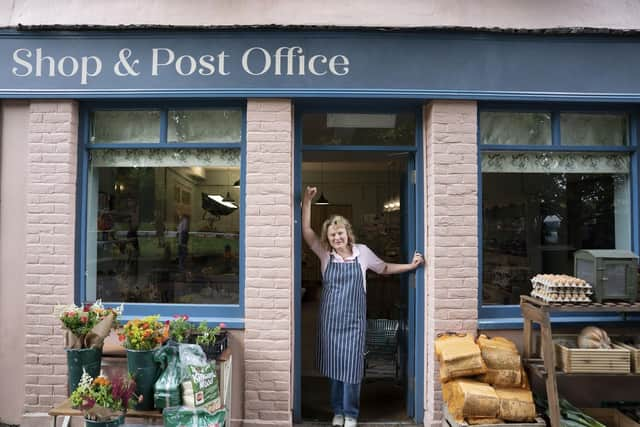Mr Bates vs The Post Office highlights the lack of empathy over other failures of justice – Karyn McCluskey
The power of great writing and TV dramatisation won’t be lost on anyone this week. Mr Bates vs The Post Office, which shows the travesty of false accusations and the destruction of lives through the prosecution of sub-postmasters, is essential viewing.
If the TV drama raised emotions, listening to those affected relive experiences in prison, like giving birth behind bars and being ostracised by communities, was devastating. It’s extraordinary how power was used to silence complainants, as is the recognition that there’s power in numbers and in people getting together to share common experiences. Equally as extraordinary is that the response was to thwart those connections, so people were isolated. There is something rotten in the state of Denmark.
Advertisement
Hide AdAdvertisement
Hide AdFor all those shouting into the void about issues, it’s often only when we get a media star or drama that the public comes together to demand action. What does that say about us as a society? Are we so disengaged that we need to experience issues through drama, or are stories so complex and difficult to convey that the best way to humanise them and prompt action is through film? Is the diminution of the traditional newspaper industry and the lack of funds and time to fuel investigative journalism we had in previous decades changing our understanding of the country we live in and what we should be paying attention to?


TV producers’ motivations
The multiple-choice answer is, “all of the above”. My organisation carried out engagement with the public about how they receive their information about Scottish justice. Huge numbers said “Netflix”. There are great documentaries and programmes about justice on the platform. Ava DuVernay’s ‘13th’ explores mass incarceration and the intersection of race and justice. Underneath, it’s the story of every political administration which gets elected and then gets busy creating more laws, whilst forgetting about the law of unintended consequences. It’s worth a watch.
But it presents us with a problem. Those who commission drama decide what appears on our screens and, sometimes, what we are then motivated to change. Who are they? Will they be interested in commissioning programmes which are about people who are less easy to love or like, or who we have less obvious connections to? That remains to be seen.
Social media is a poor substitute for indepth investigative or campaigning journalism and yet we need people to engage to get the change we need. There are great examples where change happens from dogged determination and investigation. Marion Scott, a journalist and force of nature, relentlessly shouted about the use of surgical mesh and the women’s lives that were impacted by dreadful injuries after its use. Her story revealed women ignored by the system, dismissed, belittled and othered – and it continues to have relevance beyond the medical world.
However, the Post Office drama is a unicorn – TV rarely leads to change in our systems and structures. Our justice system is full of stories that demonstrate why change is needed, but perhaps because we feel we lack the connectedness to the people, it becomes a human zoo. No one cares until they are in it. Most think they will have no contact with it. Does anyone have Ridley Scott’s contact details? Asking for a friend.
Karyn McCluskey is chief executive of Community Justice Scotland
Comments
Want to join the conversation? Please or to comment on this article.
